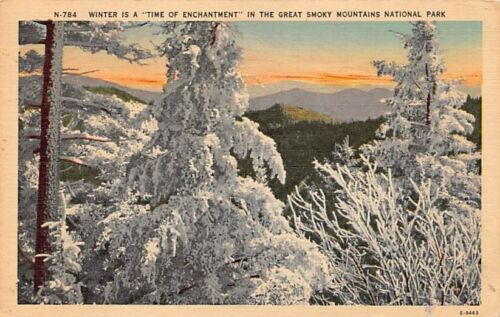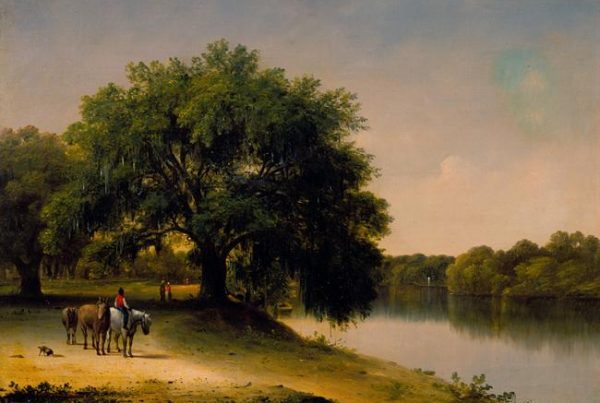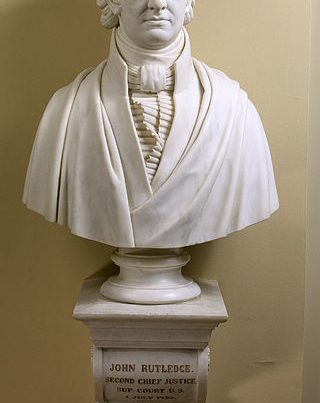As Christmas 2023 rapidly approaches I am put in mind of a short poem, “The Broad Winter,” written some seventy years ago by English poet, Jack Clemo. It may seem a bit odd to cite this work during the Christmas Season, but I will explain.
Here it is:
“The darkness comes as you foretold.
You hear the fretful moan,
The alien winds that rave
As bitterly the grey truth breaks
On disillusioned Church and frantic world.
You see what form the judgment takes,
What harvest faithless generations reap:
The folds half empty, no clean pasture for the sheep;
Soil sterile where the liberal waters swirled
Which now have hardened into mud
Of festering ethic, fruitless hands grown chill
With their starved, pallid blood;
And the sky freezing still.
[And the poet’s response]
When I saw this I chose to dwell
With torturing symbols of the Citadel.”
Upon reading it you might ask: “Why would we wish to dwell on such dark things during the Christmas Season which is, after all, a time of inextinguishable and ineffable Joy? Why would we wish to read such a work that surveys the ruin and apostacy of our modern world?”
Read the last two lines again.
They remind us that Hope and the Promises of Salvation and Everlasting Life entered this world a little over 2,000 years ago. And those Promises and that Hope cannot be extinguished or defeated by the powers of Darkness, by Satan and his diverse minions of this world, no matter how strong and invincible they may appear, or how much damage they have done to two millennia of Christian civilization.
Thus it is that once more there are broad smiles on our faces, despite the travails and difficulties we encounter in our own lives, and despite the “faithless generations” that Clemo mentions in his poem.
The Feast of the Nativity of Our Lord is a day we celebrate, for it is a memorialization of that Event in history which is completely unimaginable in human terms and that forever changed human history.
The sin of Adam—Original Sin—affected all mankind and left descendants marked, indelibly stained by that original fault. Adam’s sin was a form of disobedience, but a disobedience so grave and monumental against God’s Creation that only the Coming of the Messiah, the Second Person of the Trinity of the Godhead, could repair it. And the Son of God would be Incarnate in a woman who would be pure and herself immaculate, untouched by the inheritance of sinfulness (by the merits of her Son). Only such a pure womb would be fitting for the Incarnate God. And only the Incarnation into one of His creatures would serve the purpose of demonstrating that Our Blessed Saviour would come to us, not only as God, but also in the form of Man—this was fitting because it was to Mankind that He was sent.
For hundreds of years the People of Israel had awaited the coming of a Messiah to lead them, to liberate them and, if you will, to repair Adam’s Fall. But this vision—whether expressed in the revolts of the Maccabees or in later violent episodes like the revolt of Simon bar Kokhba against the Romans (132 A.D.)—implied not just satisfaction for sinful ways, but increasingly the establishment of an earthly and secular kingdom for and of the Hebrews.
And although Our Lord and Saviour indeed came first to the Jews, and offered them His reparative Grace and Salvation, it was by no means to be limited to them. Indeed, His message was universal (as it had been to Abraham). And those Hebrews who accepted the Messiah—and those Gentiles who also joined them—became the Church, the “New” Israel, receptor of God’s Grace and holder of His Promises and carrier of His Light unto all the world.
While a majority of old Israel rejected Our Lord, demanding His Crucifixion before Pilate, those who followed Him and believed in Him entered the New Covenant, a New Testament. It is in this sense that the Christian church inherited the promises of Israel and the Old Testament, and thus fulfilled those prophesies. And that fulfillment continues.
St. Paul in his Epistle to Titus [2:11-15] summarizes both the dazzling and miraculous wonder of Our Saviour’s Grace amongst us and its inexhaustible power to transform us: “The grace of God Our Saviour hath appeared to all men, instructing us, that, denying ungodliness and worldly desires, we should live soberly and justly and godly in this world, looking for the blessed hope and coming of the glory of the great God and our Saviour Jesus Christ: Who gave Himself for us, that He might redeem us from all iniquity, and might cleanse to Himself a people acceptable, a pursuer of good works. These things speak and exhort: in Christ Jesus our Lord.”
We—the Christian church, those chosen out of Grace who accept God’s gifts—are in a journey to that day when Our Lord will reign fully not only in Heaven but here on earth as well. That is why we worship Him as Christ the King, for He must rule not just in our hearts but over all Creation.
In the year 800 A.D. as Charlemagne was crowned Emperor of the Holy Roman Empire in Aachen, Germany, the choirs intoned the antiphon: “Christus vincit! Christus regnat! Christus imperat!”—“Christ conquers! Christ reigns! Christ commands!” These Imperial Acclamations indicated that Our Lord was recognized as both Lord and Master, in Heaven and on Earth, and that our mission was not just to be confirmed in the Faith, but to spread it to every corner of the globe, and—very importantly in our day and time—to defeat its powerful foes.
And for this task, by the love of Christ and through our Faith in Him we have been given the invincible armament of Our Lord’s graces to support us and the gift of the supernatural Virtue of Hope, that whenever we are tempted to despair, pulls us back and redirects our vision. It is this solemn promise which Christmas reminds us of.
It is fascinating to note that in 1659 the Puritans in control of the Massachusetts Bay Colony actually banned Christmas and the festivities surrounding it which they considered, in their Iconoclastic and heretical way, to be an affront to God:
“For preventing disorders arising in several places within this jurisdiction, by reason of some still observing such festivals as were superstitiously kept in other countries, to the great dishonor of God and offence of others, it is therefore ordered by this Court and the authority thereof, that whosoever shall be found observing any such day as Christmas or the like, either by forbearing of labor, feasting, or any other way, upon such accountants as aforesaid, every person so offending shall pay of every such offence five shillings, as a fine to the county.”
For those zealots, Christmas was a distraction, a pagan celebration that smacked of the feared Catholic and Anglican traditions. Too much celebration, too much joy took away from their practical and stern Gnosticism. Indeed, by so doing they actually cut themselves off completely from living Christian tradition and the inheritance of 1600 years of Christian faith.
As various distinguished historians and authors such as Perry Miller and Paul Conkin have detailed, the Puritans of Massachusetts begat in third and fourth generations a degenerative vision of humanity that maintained the same frenzied zealotry and framework of the original Yankee Puritans, but had evolved into philosophical Transcendentalism and religious Universalism, and later into such fanatical aberrations as Abolitionism, Women’s Suffrage, and various hysterical “civil rights” reform movements since then. Without the firm anchor and foundation of Sacred Tradition, “faith” became little more than a social philosophy advocating for insane change here on earth. For them “salvation” would be found in social reform and perpetual (and destructive) revolution.
And we have seen in our own time the continued expressions and the results of this philosophy. For today it is the descendants of those same Puritans, now vested in all the gross finery of radical Progressivist thought, who advance the latest causes for gender equality, same sex marriage, transgenderism…the same descendants and their allies who denounce anyone who challenges their new template on race as “racist”…and the same apparatchiks who with unleashed passion demand that the “new Gospel” of American-style secular democracy and equality be imposed on the rest of the globe. There lies salvation for them. It is, in reality, a sure path that leads directly to a hell on earth…and to Hell without the Redemption of Our Lord.
So, as we begin to celebrate the Feast of Christmas, by that very act we defy and denounce those Puritans and their progeny. Like Clemo’s poem, we cling to the Citadel of Faith and its forthright affirmation.
In the ancient liturgy for Christmas night is sung:
“Let the heavens rejoice, and let the earth be glad before the face of the Lord: because He cometh.”
Once more, then, I take this special opportunity to wish each of you and your families a most joyous and blessed Feast of the Nativity of Our Lord, 2023. May this Christmas Season be a source of Christ’s grace to you and confirm you in the unshakeable Armor of Faith and the Hope that only He can give.
A blessed and joyous Christmas to you all and to your families!
(reprinted with permission of author)







Fantastic, again, Dr. Cathey. Merry Christmas!
Dr. Cathey, thank you for this wonderful and uplifting essay. Merry Christmas to you and yours also! I wish you happiness and God’s blessings in the New Year.
Joyce, I find it difficult to believe you approve of mr. Cathey’s essay. He uses several paragraphs to maliciously attack people who have been dead for nearly 4 hundred years. The Puritians were a godly people. This attack is much like the attacks on my Confederate ancestors, they can’t defend themselves either. He cites two atheist historians the first Perry Miller drank himself to death, Cathy blames the Puritans. The second was Paul Conklin, an active member of the Unitarian Universalist church in Nashville Tn. He does not believe Jesus Christ is the Son of God. You do not have to like or agree with Puritan theology, but you owe it to yourself to know who they were and what they believed. Quite a few Southern writers speak ill of those good people Most of them are Catholic.I am not a Catholic and I don’t need to lie about them either My last point is this, there were many Puritans in the South from Jamestown onward.